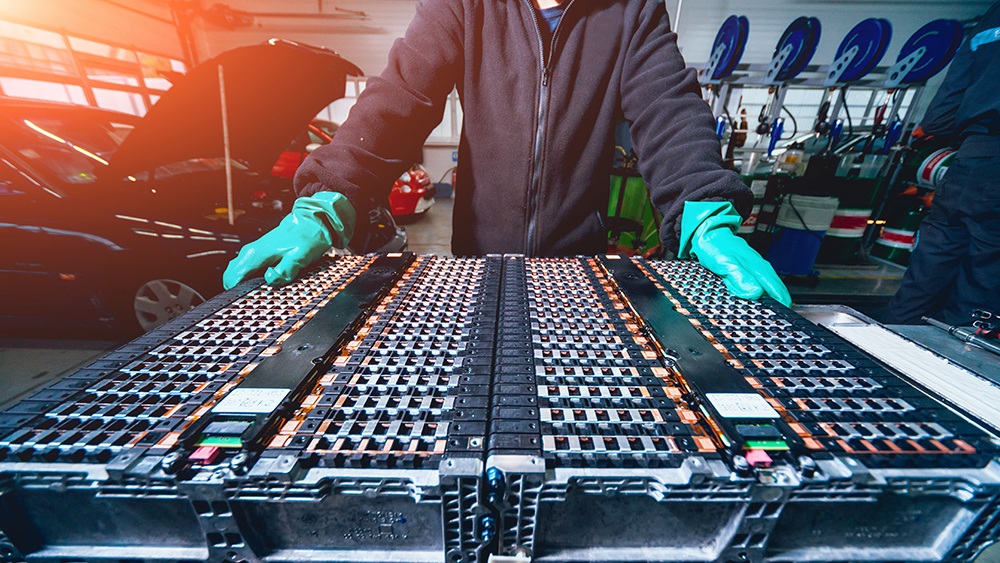OpenAI’s $200M military AI pact sparks ethical crossfire
06/20/2025 / By Willow Tohi

- OpenAI secures $200M DoD contract to develop AI for military and cybersecurity needs, reversing prior restrictions on defense work.
- The deal signals Silicon Valley’s deepening ties with the Pentagon, exemplified by Palantir’s Peter Thiel and Meta executives joining Army Reserve tech units.
- Critics raise concerns over AI’s role in warfare, transparency deficits and ethical risks, recalling past controversies like Google’s Project Maven.
- OpenAI highlights economic benefits—jobs, GDP growth, U.S. AI dominance—but questions linger about corporate influence over critical national security decisions.
- The U.S. joins global race to militarize AI, as China and Russia accelerate development, calling for heightened oversight to prevent unchecked tech power shifts.
OpenAI, the San Francisco-based AI leader behind ChatGPT, has dramatically shifted gears by signing a $200 million one-year contract with the U.S. Department of Defense (DoD) to deploy generative AI systems for national security and military purposes. The deal reverses the company’s prior ban on military applications and marks a stark inflection point in Silicon Valley’s alignment with armed forces. Unveiled on June 16, 2025, the contract mandates OpenAI to develop AI tools for both battlefield strategies and administrative tasks such as cybersecurity and veteran healthcare logistics. As the partnership unfolds, it reignites debates about the ethical implications of AI in warfare, transparency in government-tech collaboration and the rapid militarization of advanced technology.
The AI-defense pivot: A new frontier for Silicon Valley
OpenAI’s pivot to defense innovation underscores its ambition to become a cornerstone of U.S. national security. The $200M deal, framed as a “pilot program” under the newly launched OpenAI for Government initiative, positions the firm as a key partner in modernizing military operations. Projects include streamlining administrative processes, improving cyber defense and enhancing healthcare access for service members. The Department of Defense (DoD) states the AI systems will address “critical national security challenges,” while OpenAI emphasizes the initiative aligns with its “usage policies”—though critics question their sufficiency in such high-stakes contexts.
This move reverses OpenAI’s 2023 policy prohibiting military applications, a reversal CEO Sam Altman defended at April’s Vanderbilt University forum as a step towards “pride” in national security contributions. The shift parallels broader industry trends: Palantir, founded by conservative tech mogul Peter Thiel, and Meta have similarly cemented ties with the military. In a symbolic gesture, Palantir and Meta executives recently joined an Army Reserve unit to overhaul battlefield tech, signaling Silicon Valley’s growing embrace of defense roles.
Tech titans in uniform: The corporate-military complex evolves
The OpenAI contract is part of a larger tech-industry push into U.S. military operations, echoing Cold War-era defense-industrial collaborations. Last year, OpenAI allied with Anduril Industries to deploy AI for anti-drone systems, while Thiel’s Palantir secured its own defense contracts. In a June 12 development, high-ranking executives from these firms swapped corporate cubicles for military uniforms, enlisting in units tasked with transitioning AI, robotics, and sensor networks into combat readiness.
This integration of profit-seeking tech leaders into defense structures alarms transparency advocates. “What could go wrong when self-interested corporations design systems that could kill?” asks Simon Kent of Breitbart News. Critics warn of profit-driven blind spots, contrasting concerns with the Pentagon’s 2022/logics of reports estimating $100 billion in planned AI military R&D over five years.
Beneath the iron: Ethical quandaries in AI’s bloodshed future
Ethical misgivings grip the debate, particularly over AI’s potential in autonomous weapon systems. OpenAI’s new policies reject “autonomous weapon development,” but the line between aiding soldiers and replacing human judgment remains fuzzy. Historian Patrick Wood warns of a “slippery slope toward AI-orchestrated battles.”
This anxiety mirrors past tech tangles with Pentagon projects. In 2018, Google faced employee fury over its Project Maven drone-surveillance collaboration, prompting a temporary ban on lethal AI. OpenAI’s decision to forego such restrictions while seeking federal contracts alarms civil liberties groups, who note no binding oversight mechanism exists for corporate military contracts.
Glass half-empty: Transparency and accountability gaps
The OpenAI-DoD deal exemplifies a broader opacity problem. While OpenAI guarantees to uphold its “usage guidelines,” the DoD declined to disclose specific project applications. Defense officials only stated the work would occur in Washington, D.C.’s National Capital Region. Absent clear constraints, concerns arise about AI’s potential misuse—whether in cyberwarfare, civilian surveillance, or classified missions.
Rep Mike Waltz (R-FL), a vocal House oversight committee member, criticized the pact in a June 18 statement: “Taxpayer dollars deserve better than vague promises. Congress must demand audits ensuring AI doesn’t eclipse accountability.” This demand echoes amid revelations that OpenAI’s $500B Stargate initiative, funded by Trump’s administration, lacks public cost-benefit disclosures.
A crossroads for tech’s future in defense
OpenAI’s military deal epitomizes the 21st-century arms race, where AI’s power exceeds traditional weaponry. Supporters laud it as essential for countering China’s AI-enabled weapons and drones. Skeptics, however, fear it cedes control over life-and-death decisions to corporate algorithms and erodes democratic oversight.
As debates intensify, transparency will be the litmus test. Without robust safeguards, the fusion of tech conglomerates and military might risks creating a power structure even more opaque than today’s. For now, OpenAI’s $200M contract is the harbinger of dilemmas yet unresolved—ones where the value of innovation collides with the sanctity of human agency.
Sources for this article include:
Submit a correction >>
Tagged Under:
big government, collabortion, conspiracy, cyberwar, Dangerous, drone watch, future tech, Glitch, government debt, military contract, military tech, military technology, national security, Open AI, robots, surveillance, weapons tech, weapons technology
This article may contain statements that reflect the opinion of the author
RECENT NEWS & ARTICLES
COPYRIGHT © 2017 INVENTIONS NEWS



















